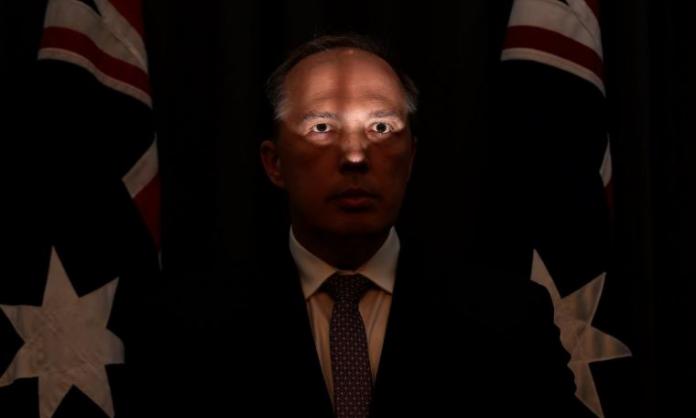To a half empty chamber on 13 May, home affairs minister Peter Dutton presented still another bill that trashes civil liberties. The ASIO Powers Amendment Bill (2020) includes provisions for ASIO to hold and question 14-year-old children, interfere with the legal representation of people in custody and track people without the need for a warrant.
The laws will authorise the attorney-general unilaterally to issue questioning warrants without reference to an “issuing authority”, and these warrants can be oral, with a written record required only 48 hours later.
ASIO’s questioning powers will be further expanded by the bill, to cover investigations into espionage, foreign interference and politically motivated violence, which will also lower the minimum age at which someone can be questioned to 14.
Individuals will no longer have the right to a lawyer of their choice. If a prescribed authority deems it a security risk, detainees can be denied the right to access their lawyer. ASIO officers will also have the power to remove a detainee’s lawyer from questioning if they are “unduly disrupting questioning”. If the person being questioned can’t find a new lawyer in “reasonable time”, they will have to accept an ASIO-appointed lawyer or go it alone.
The ASIO Amendment Bill will further allow ASIO officers secretly to install tracking devices on any object used or worn by a person, without the need for a warrant. All that will be required is oral authorisation from another ASIO officer. To recover tracking devices, ASIO officers will need only oral approval to enter any premises, break anything if it will help recover the device, use force as necessary and, for good measure, do “any other thing reasonably incidental to any of the above”.
Speaking to the Guardian of 21 May, the UNSW dean of law, George Williams, said of the bill, “We’re now really at the sharp end of the most concerning powers, you know, when you get to intelligence agencies operating in secret, being able to exercise coercive powers with respect to Australian citizens who aren’t even suspected of terrorism”.
Dutton bleats about “the subject’s right to make a complaint orally or in writing to the Inspector-General of Intelligence and Security”, but individuals have little protections against the ever expanding powers of Australia’s security state.
Take Witness K, who followed lawful procedures to complain to the Inspector-General of Intelligence and Security about spying operations conducted by the Australian government in East Timor in 2004. After speaking out, Witness K and his lawyer, Bernard Collaery, were charged and are now facing jail.
Or Mohamed Kamer Nizamdeen, who in 2018 spent one month in solitary confinement on terrorism charges, the only evidence against him being handwriting in a discarded notebook that there was no proof belonged to him. After charges against Nizamdeen were dropped, NSW police counter terrorism assistant commissioner Michael Willing refused to apologise, saying, “These were very serious threats. We can never be complacent because the terrorist threat in Australia and NSW is very real”.
While attention is on the COVID-19 crisis, a further strengthening of Australia’s “security” (repression) apparatus is likely to breeze through parliament. Labor has not indicated opposition and has no track record of defending civil liberties. It will be yet another blow against civil liberties and democratic rights.








